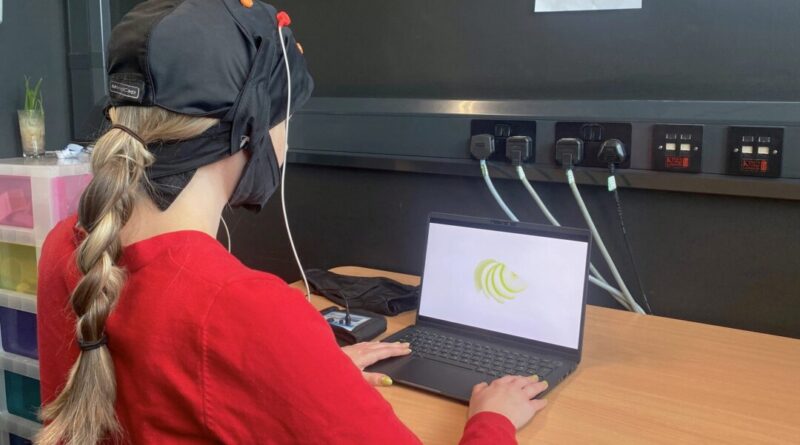Trial of Brain Stimulation Treatment for Binge Eating Disorder Demonstrates Promising Outcomes
The disorder affects 2 percent of Britain’s population, but is said to be an illness that’s typically neglected and lacking research funding.
A new way of treating binge eating disorder at home using electrical brain stimulation has shown “encouraging” results, clinicians have said.
Participants in a clinical trial by the Institute of Psychiatry, Psychology, and Neuroscience (IoPPN) at King’s College London reported changes in their eating behavior and lasting weight loss.
Researchers applied a treatment that combines a technique called transcranial direct current stimulation (tDCS) with a training program that targets unhelpful patterns of attention around food.
Gentle electrical stimulation is applied via electrodes placed on the scalp to selected areas of the brain. It changes the function in the prefrontal areas of the brain, while attention bias modification training (ABMT) helps patients regulate their biases towards food cues.
The trial involved 82 participants who were overweight or living with obesity and who met criteria for a binge eating disorder diagnosis.
Binge eating disorder involves regularly eating a lot of food over a short period of time until uncomfortably full. The NHS defines it as a serious mental health condition where people eat without having control of what they are doing.
Participants in the trial were divided into four groups, where some received both tDCS during ABMT and others received pretend headsets that didn’t deliver brain stimulation.
Researchers found that the patients with real treatment showed the most pronounced changes to their eating behavior. For them, binge episodes were reduced from around 20 times a month on average to six times, at follow-up six weeks later.
“No similar change in mood was reported in those who received sham tDCS with ABMT or in those who received ABMT only, and there was no change in mood in the no treatment control,” the research found.
About 50 percent of patients who are treated with psychological therapies achieve full recovery, researchers said. However, according to research associate at IoPPN Michaela Flynn, not all current available treatments are effective in tackling BED.
Misunderstood Illness
According to UK Addiction Treatment Centres (UKAT), binge eating disorder affects 2 percent of the UK population.
It is more common than bulimia and anorexia combined, but often remains in the “shadows of public discourse” and is widely misunderstood, UKAT said. Patients with the condition typically experience anxiety, low mood, depression, and guilt.
The illness is a “really neglected, but common and distressing eating disorder that is typically surrounded by a lot of shame,” said Ulrike Schmidt, professor of eating disorders at IoPPN.
The tested treatment allows people to try it at home, without feeling the discomfort of having to attend hospital appointments.
“For some time eating disorder services have not been funded to work with or treat people with binge eating disorder. Importantly, the treatment described here is straightforward to deliver, making it potentially highly scalable in the NHS,” said Mr. Schmidt.
The exact causes of binge eating disorder are unknown but are likely to be linked to family medical history, societal pressure to stay slim, low self-esteem, stressful events, or trauma.
Senior research fellow at IoPPN, Iain Campbell, has called on future studies to include a larger clinical trial and longer-term follow-up beyond six weeks.
He called the IoPPN trial findings “encouraging” and said they will “help refine treatment protocols” associated with neuromodulation.
Neuromodulation technology acts directly upon nerves and alters nerve activity by delivering electrical or pharmaceutical agents directly to a target area, such as the brain.




